The Computing Conference 2018 kicked off at Cloud Town in Hangzhou in September with the theme "Empower Digital China", focusing on the innovation in government organizations. More than 120,000 guests attended the conference, including CEOs and CTOs from over 60 countries.
The 4-hour main forum highlighted many initiatives by Alibaba Cloud including:
Alibaba's CEO Daniel Zhang, who will succeed Jack Ma as chairman next year, took the lead by delivering an 8-minute keynote speech.
He pointed out that at present, Alibaba's business scope has expanded across E-commerce, financial services, logistics, and cloud computing. Alibaba Group as a whole achieved a market value of more than RMB 4.8 trillion over the past year. Alibaba aims to achieve a gross merchandise volume (GMV) of USD 1 trillion within the next three years. Today's Alibaba mirrors today's digital China. Through Alibaba's accomplishments, people can see how digital technologies influence society in all aspects, including not only individuals and companies, but also politics, economics, and humanities.
Zhang also emphasized that Alibaba Group is and always will be a technology-driven company and digital economy focusing on making a different commerce and creating new business models.
Today's Alibaba has grown into a diversified ecosystem, including its unique New Retail ecosystem built on its E-commerce foundation, and a service ecosystem developed based on its financial services.
Next, Alibaba Cloud's President Simon Hu announced the launch of ET City Brain 2.0.
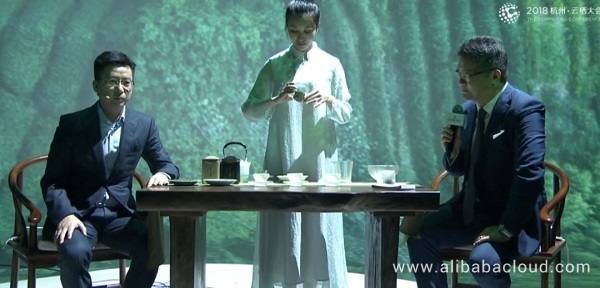
Before his speech, Hu demonstrated to the host and the audience how to use image recognition to identity tea varieties through machine learning technologies.
Hu invited Jin Zhi, Deputy Chief of Zhejiang Provincial Public Security Department, to launch Hangzhou ET City Brain 2.0, an urban traffic management system, which is said to be an important preparation for the 2022 Asian Games to be held in Hangzhou.
According to Alibaba, Hangzhou ET City Brain 2.0 is becoming the new infrastructure for Hangzhou with a total coverage area of 420 square kilometers (28 times larger than the coverage area of last year) covering the main urban area, Yuhang District, and Xiaoshan District. ET City Brain 2.0 connects to 1,300 traffic lights and 4,500 traffic cameras to monitor the seven vital signs of urban traffic, and to dispatch over 200 traffic officers via mobile devices. Moreover, ET City Brain 2.0 is being applied to firefighting for the first time and has become a capable assistant to firefighters in the protection of citizens' lives and property.
Hu contacted a traffic officer and a firefighter from Hangzhou Municipal Public Security Bureau, asking them to give a live demonstration of the real-time monitoring screen for traffic management, which has been put into commercial use.
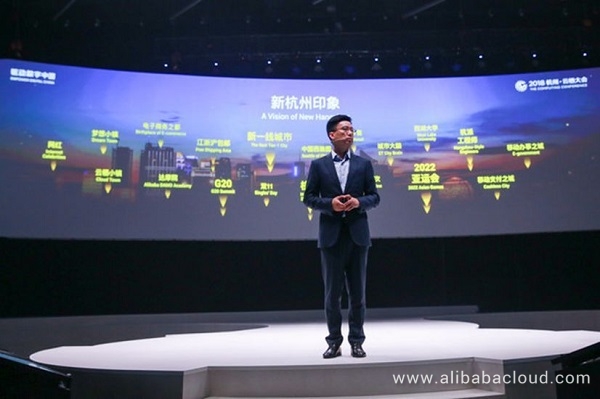
Alibaba Cloud then announced a series of cooperative projects with its global partners engaging in business and public welfare, including:
At last year's Computing Conference, Alibaba announced the establishment of DAMO Academy. Over the past year, DAMO Academy has really begun to take shape. DAMO Academy's CTO Jeff Zhang revealed its accomplishments.
Last year, DAMO Academy built 4+x labs and a collaborative ecosystem involving 6 colleges and over 300 researchers in 8 cities across the globe.
Zhang added that, Alibaba boasts a substantial amount of data, among which the average data gathered from e-commerce amounts to 600 PB. How to process the increasing amount of data with high efficiency has become a crucial task for Alibaba. DAMO Academy has focused on the underlying algorithms and computing power, and has started developing two types of chips to be launched in April next year.
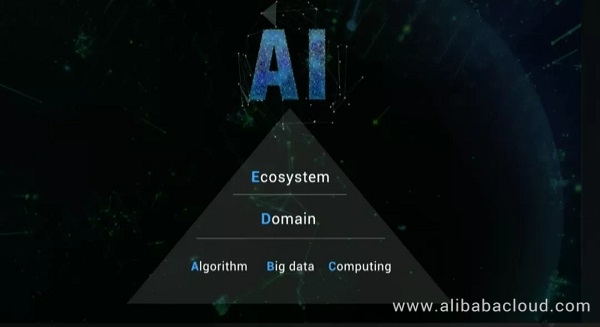
Zhang said, Alibaba's first proprietary neural network AI chip Ali-NPU is expected to make its debut next year. As a new-generation chip, Ali-NPU will be the best in all aspects, including a 10x deep learning inference performance and a 40x performance per watt. The second type of chip to be launched is an embedded CPU IP Core—CK902, which is devoted to building the Internet of Intelligences (IoI) ecosystem.
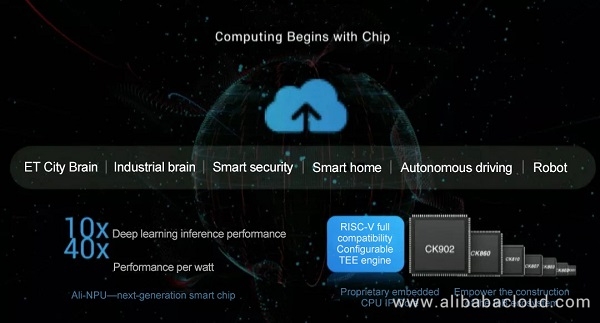
In addition, Zhang revealed the progress achieved by DAMO Academy in quantum computing.
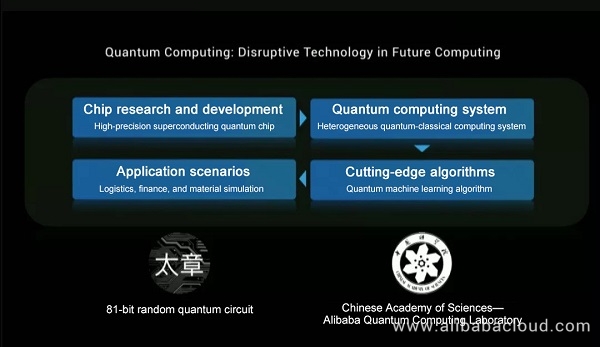
Alibaba DAMO Academy then announced the establishment of a semiconductor company named Pingtouge Semiconductor Co., Ltd. Pingtouge is the Chinese nickname for the honey badger, a fearless animal that lives in Africa. Inspired by the indomitable spirit of the honey badger, Alibaba will always pursue its mission with courage and believe in the huge potential of even a small thing like a chip. Before becoming an independent company in the future, Pingtouge Semiconductor Co., Ltd. will rely on Alibaba's support at the early stages.
Zhang also announced the establishment of the Young Fellow Award and the Alibaba Global Mathematics Competition that DAMO Academy has set up. He said the aim of the two projects is to promote the development of young talents and mathematics, which constitute the two pillars of Alibaba's development.
The Young Fellow Award is granted to young talents in the Greater China Region, who are under the age of 35 or have obtained their PhD within six years, and specialized in information technology, semiconductor, intelligent manufacturing, and other domains. The prize-winner will receive not only RMB 1 million in cash, but also the access to Alibaba's scientific research resources to enjoy a collaborative ecosystem.
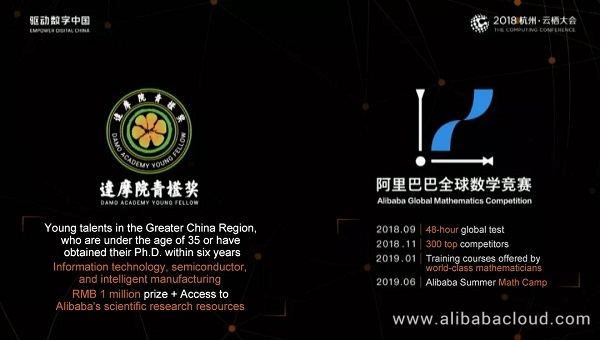
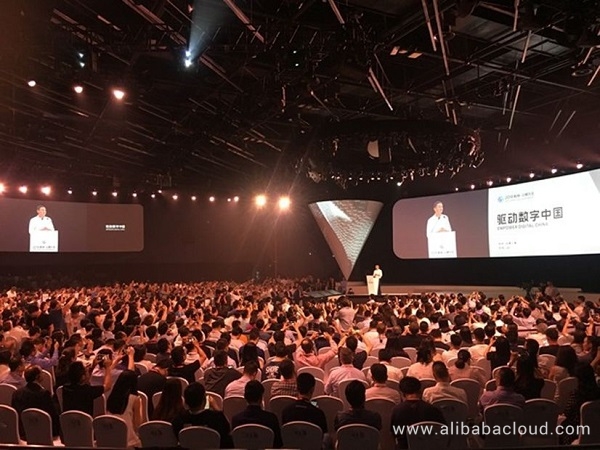
The following are some highlights of Jack Ma's speech:
I had so much to say before the wonderful show given by the mathematicians. (Some mathematicians gave a demonstration of the beauty of mathematics a few minutes ago.) However, compared to what they have shared, my sharing seems to be less appealing. I have had good conversations with these mathematicians last night. I have always regretted that I didn't choose the world of mathematics. However, I also feel lucky that I didn't choose it, because I probably would have been kicked out.
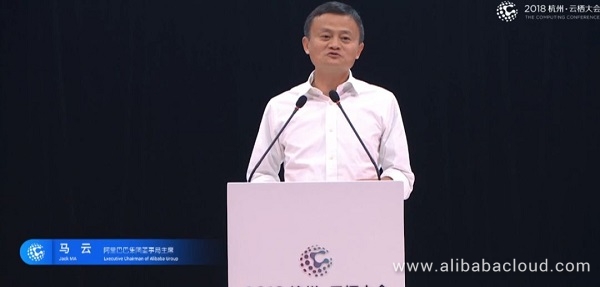
Undoubtedly, without the firm foundation of mathematics, science wouldn't be possible; and without the foundation of science, there wouldn't be any technology. True heroes are those who keep working in obscurity yet making great contributions to the whole society. Alibaba feels honored to be able to develop and do something for these basic sciences today. We have been used to readily accessing whatever is of great value these days. However, nothing significant can be achieved without great effort. Everyone wants instant gains, but you can only reap what you sow.
This is the ninth Computing Conference, and ten years has passed. This year's conference has seen the most participants. Everyone here comes with belief. Only 300 to 400 engineers showed up at the first conference, which was held in a hotel. There was nothing to show and nothing to see. What we had were only some exchanges of ideas and thoughts.
But now, we have gathered here the world's most cutting-edge technologies and high-tech wonders. The Computing Conference is different from other science forums and exhibitions. Many people come here not to sell products but to demonstrate and share ideas. Today we are here because we choose to believe.
In 2016, I talked about my vision of the future of society. China, in particular, will enter an era of New Retail, New Manufacturing, New Technology, New Finance, and New Energy. New Retail has practically redefined the retail sector. Today, we will focus on New Manufacturing.
New Manufacturing will soon bring a sweeping threat to the manufacturing industry of not only China but the whole world. In the next 10 to 15 years, everyone in the manufacturing industry will suffer unprecedented hits. We must get ready and be fully prepared for the future. Some say that the days of physical manufacturing are numbered. In my opinion, it is not the manufacturing industry, but the manufacturing laggards, who will be doomed. This technology revolution will last for 50 years. The next 30 years will see the application of change in every aspect of society, not only in technology but also in ideology. Whereas IT aims to control the future, DT seeks to create the future. IT turns human beings into machines, whereas DT seeks to make machines human-like. Whereas the age of IT nurtures the manufacturing industry, the age of DT shall nourish creativity. IT depends on knowledge, but DT requests the wisdom of human beings.
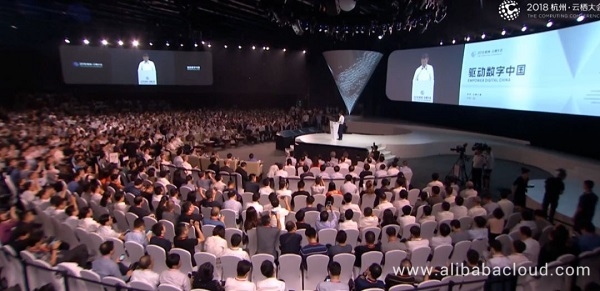
Didi Chuxing, a major ride-sharing conglomerate in China, has brought about a platform-oriented age. What do you know about platforms? A platform should not pursue the expansion of scale, but aid others in development. Some people say that when an enterprise grows big, it will become a platform. I say, an enterprise becomes a platform only when it seeks to benefit others and help them grow. The age of IT requires standardization, whereas the age of DT asks for personalization and flexibility. New Manufacturing is derived from DT thinking.
In the next 10 to 15 years, traditional manufacturing enterprises will suffer grave pain. In the face of the technology revolution, increasing challenges from the external environment will make it more and more difficult for a traditional enterprise of high resource consumption to survive. Turning away from New Manufacturing is like driving in blindness, because you won't know who your customers are and what they want.
The whole manufacturing sector should be well aware of this situation and refrain from being content with the status quo, especially for some enterprises that have profited somewhat from online marketing. It doesn't matter whether you have embraced the Internet or not, every manufacturing enterprise should prepare for tomorrow and think about how to cope with the future.
In the future, a successful manufacturing enterprise must be a New Manufacturing player who is good at using the Internet, the IoT, cloud computing, and big data. Because those who are bad at these new technologies will be laggards and will be doomed to fail. New Manufacturing will redefine the manufacturing industry. New Manufacturing will redefine the customer market, supply chain, and all kinds of manufacturing, business operations, and services. It will lead a technology revolution.
New Manufacturing does not mean the simple combination of Internet enterprises and traditional industries, or a product plus a chip. New Manufacturing requires customization, personalization, and intelligence.
In the Industrial Age, people invented assembly lines to realize mass and standardized manufacturing. However, assembly lines in the digital age should also enable personalized manufacturing. The Industrial Age requires the ability to manufacture one kind of product at scale, whereas the digital age calls for the ability to manufacture various kinds of products. In the past, producing 2,000 of the same garment in 5 minutes using an assembly line might be impressive. From now on, producing 2,000 different garments in 5 minutes will be more impressive!
Two decades ago, fashion brought all the ladies in a village or even a whole province the same garment to wear. Today, fashion brings every lady a different garment to wear. The core of on-demand manufacturing lies in data. Future manufacturing will rely on data, which will become an essential means of production. In the past, manufacturing depended on electricity, whereas future manufacturing will depend on data and computing power. Chips, artificial intelligence, big data, and cloud computing will reshape today's production workshops in the same way that steam machines and petroleum oil changed the handicraft industry.
IoT is essentially an Internet of Intelligences (IoI). An IoT without intelligence is no more than a vegetable. We already have numerous cameras connected to the Internet. Yet without sufficient computing power to process the data, those cameras are only used for imposing fines. What a waste of data!
Chip technology is the core technology in which we are still some distance away behind developed countries and established enterprises. But in the domain of IoT, we can catch up. China has the world's largest Internet population and Internet market, which offers a good opportunity for us to build our own chips. Sometimes, a weak foundation makes it easy to achieve leapfrog development. Future manufacturing will be driven by data, with big data as a means of production, cloud computing as productivity, and the Internet as a production relationship. Big data is not merely a matter of data. It requires strong computing power. Computing power plus cloud data constitute what we now call big data.
In the future, an algorithm expert will not work inside the office, but write code in a workshop. New Manufacturing is a melding of the manufacturing and service industries. Note that there will be no pure manufacturing or pure service industry in the future. We can no longer rely on the manufacturing industry to create jobs. There are people who suggest we boost employment through manufacturing. I don't agree. Manufacturing will not be the impetus for employment because of the application of artificial intelligence, that is, robots. The true engine of creating jobs lies in the service industry.
While New Retail entails the integration of online and offline, New Manufacturing is not the integration of physical and virtual, but that of the manufacturing industry and the service industry. It is the perfect merger of the manufacturing and service industries. The competitive edge of New Manufacturing lies not in manufacturing itself, but in the underlying creativity, experience, and service capabilities. Manufacturing will no longer be the key to creating jobs. I think for a country like China, the modern service industry shall be the main engine for creating jobs. Because assembly lines entail standardized work that can be easily taken over by machines.
The China-US trade war is also centered on manufacturing. We promote New Retail not for our own sake, but to introduce a new approach to retailing to everybody. And we promote New Manufacturing not for Alibaba's sake, but to help reform the manufacturing industry. New Manufacturing will fundamentally disrupt the traditional model of value creation where manufacturing is dominated by manufacturers. In the future, manufacturing will be dominated by customers.
New Manufacturing is not exclusive to large enterprises, and can be leveraged as a magic weapon for small and medium-sized enterprises (SMEs). Over 90% of the machinery and equipment in China are not interconnected. They stand separately from each other. If we can realize the interconnection of all the machinery and equipment and the intelligent control of all the production lines and their data, we will be able to revolutionize the economic development pattern. Trade conflicts are inevitable in a technology revolution and are unavoidable during the development of China-US relations. Conflicts are more than normal for the long-term economic relationship between the US and China which has a history of 30 to 40 years.
Enterprises that have not undergone any setbacks are unlikely to maintain their competitive advantages today even if they have grown big. In the face of the present trade war, all I want to say to all the entrepreneurs and start-ups is that no matter what they do, always maintain composure, and make long-term mental preparation. You might as well prepare for 20 years of China-US trade wars and remain practical, because 20 years is enough time to develop any enterprise into another Alibaba or Amazon. It only took 19 years for Alibaba to become what it is today.
Innovation calls for more than slogans. New technologies constitute the new productivity, and the development of new productivity requires the corresponding new production relations. For both the government and large-scale mature enterprises, the biggest difficulty in pursuing innovation lies not in the tolerance of failure and mistakes, but in the traps and obstacles set by obsolescent interest groups to jeopardize the new productivity. Protecting these obsolescent powers is often the most important factor in undermining innovation.
Alibaba Cloud Lays Out "Internet of Beings" Plan at The Computing Conference 2018

2,605 posts | 747 followers
FollowAlibaba Clouder - October 15, 2018
Alibaba Clouder - November 5, 2018
Alibaba Clouder - October 15, 2018
Alibaba Clouder - November 22, 2018
Alibaba Clouder - September 20, 2018
Alibaba Clouder - October 11, 2017

2,605 posts | 747 followers
Follow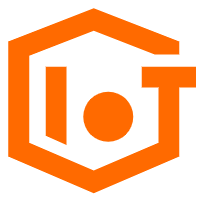 IoT Platform
IoT Platform
Provides secure and reliable communication between devices and the IoT Platform which allows you to manage a large number of devices on a single IoT Platform.
Learn More Quick Starts
Quick Starts
Deploy custom Alibaba Cloud solutions for business-critical scenarios with Quick Start templates.
Learn More IoT Solution
IoT Solution
A cloud solution for smart technology providers to quickly build stable, cost-efficient, and reliable ubiquitous platforms
Learn More Big Data Consulting Services for Retail Solution
Big Data Consulting Services for Retail Solution
Alibaba Cloud experts provide retailers with a lightweight and customized big data consulting service to help you assess your big data maturity and plan your big data journey.
Learn MoreMore Posts by Alibaba Clouder
Raja_KT March 1, 2019 at 8:15 am
Seeing many problems in big cities in India and abroad with real scenarios, I keep thinking of ET Brain city solutions... applying Techs and data to tackle those problems...